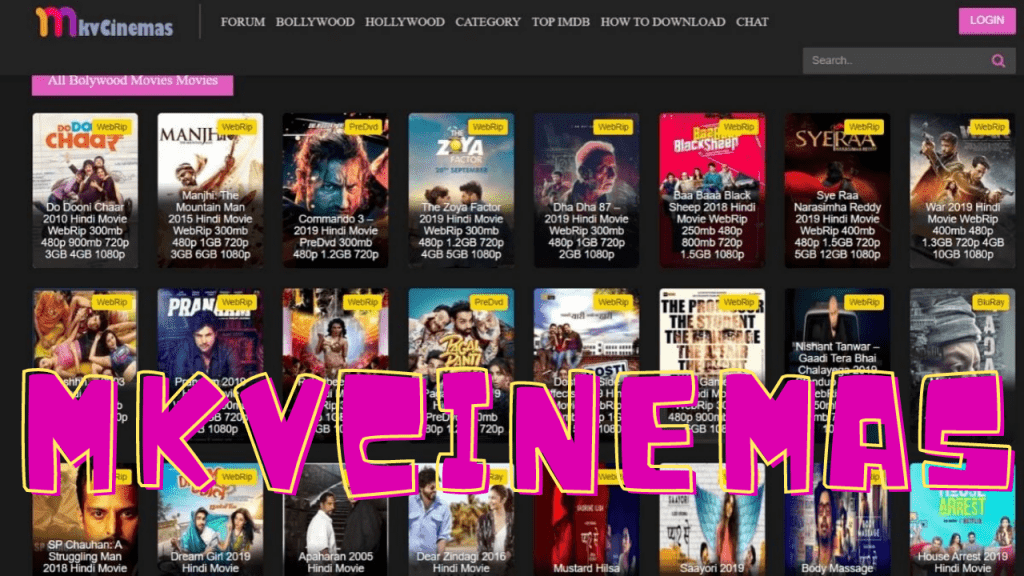In the realm of digital entertainment, MKV cinema has emerged as a significant player, capturing the imagination of movie enthusiasts and filmmakers alike. This versatile format has revolutionized the way we consume films, providing a rich and immersive experience that traditional formats simply cannot replicate. Whether you are a casual viewer or a dedicated cinephile, understanding MKV cinema can open up a world of possibilities for your viewing pleasure.
MKV, short for Matroska Video, is not just a file format; it’s a container that holds various types of multimedia content, including video, audio, and subtitles, all in a single file. This flexibility makes MKV cinema a popular choice among creators and viewers, allowing for high-quality video streaming while maintaining a compact file size. As the demand for high-definition content increases, MKV cinema continues to gain traction, offering an accessible solution for both creators and consumers.
In this article, we will delve deeper into the world of MKV cinema, exploring its features, benefits, and how it has transformed the film industry. We will also address some common questions surrounding this innovative format, providing clarity and insights for those looking to enhance their movie-watching experience. So, buckle up as we embark on this cinematic journey!
What is MKV Cinema?
MKV cinema refers to the usage of the MKV file format within the context of film presentation and distribution. It allows for exceptional flexibility in storing multiple video and audio tracks, subtitles, and metadata within a single file. This makes it a favored choice for filmmakers and distributors who want to provide viewers with a comprehensive and enriched viewing experience. Here are some key features of MKV cinema:
- High-quality video playback
- Support for multiple audio tracks and subtitles
- Efficient compression, reducing file size without sacrificing quality
- Wide compatibility with various devices and media players
How Does MKV Cinema Compare to Other Formats?
When comparing MKV cinema to other popular formats like MP4 or AVI, there are several factors to consider:
- Quality: MKV often supports higher quality video resolutions and audio formats.
- Flexibility: MKV files can contain multiple tracks, making them more versatile.
- Subtitles: MKV allows for a variety of subtitle options, enhancing accessibility.
Is MKV Cinema Suitable for Streaming?
Yes, MKV cinema is suitable for streaming, especially on platforms that support high-definition formats. However, it’s essential to ensure that your streaming device and software can handle MKV files for optimal performance. Many modern media players, such as VLC and Kodi, support MKV, making it easier to enjoy your favorite films without compatibility issues.
Who Uses MKV Cinema?
MKV cinema is widely used by independent filmmakers, studios, and content creators who prioritize quality and versatility in their productions. Additionally, many streaming platforms and torrenting communities favor MKV files due to their rich feature set and ability to compress large amounts of data without losing quality. This format has become a staple in the digital film industry, catering to both creators and viewers who seek an enhanced cinematic experience.
What Are the Benefits of MKV Cinema?
The advantages of MKV cinema are numerous, making it an appealing choice for filmmakers and audiences alike:
- Quality Preservation: MKV cinema retains the original quality of the video and audio.
- Multi-Track Support: Users can switch between different audio tracks and subtitles seamlessly.
- Future-Proofing: The MKV format is constantly updated, ensuring compatibility with new technologies.
How Can You Play MKV Cinema Files?
Playing MKV cinema files is straightforward, provided you have the right software. Here are some popular options:
- VLC Media Player: A free, open-source player that supports a wide range of formats, including MKV.
- PotPlayer: A lightweight player with advanced features, perfect for MKV files.
- Kodi: An open-source media center that organizes and plays MKV files effortlessly.
What Are the Challenges of MKV Cinema?
While MKV cinema offers many benefits, it’s not without its challenges. Some users may experience issues with compatibility on older devices or software that do not support MKV files. Additionally, the large file sizes associated with high-quality MKV videos may pose storage challenges for users with limited space. It’s crucial to consider these factors when opting for MKV files in your digital library.
Can MKV Cinema Be Used for Professional Filmmaking?
Absolutely! MKV cinema is not only suitable for casual viewing but is also widely used in professional filmmaking. Many filmmakers utilize the MKV format for its ability to store high-quality video and audio, allowing for precise editing and post-production processes. Its support for multiple tracks also enables filmmakers to experiment with different audio and subtitle options, enhancing the overall production value.
Conclusion: Is MKV Cinema the Future of Film?
In conclusion, MKV cinema represents a significant advancement in the way we consume and create films. Its unique features and advantages make it a favored choice among filmmakers and viewers alike. As technology continues to evolve, MKV cinema is likely to remain at the forefront of digital entertainment, offering a robust and versatile platform for all things cinematic. Whether you are a filmmaker or a passionate viewer, embracing MKV cinema can enhance your film experience and keep you connected to the ever-changing landscape of the film industry.
Unveiling The Mystique Of Sophie Rain Only
Benicio Del Toro: A Multifaceted Talent In Cinema
Unveiling The Allure Of Camilla Araujo On OnlyFans


